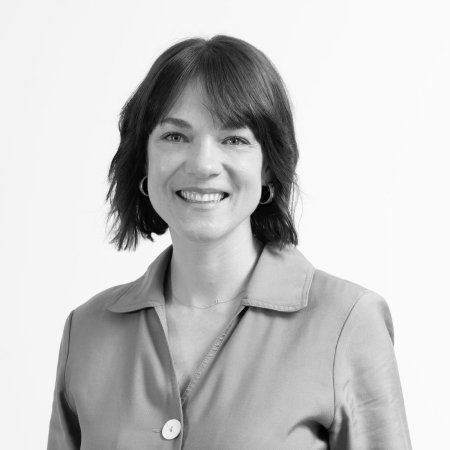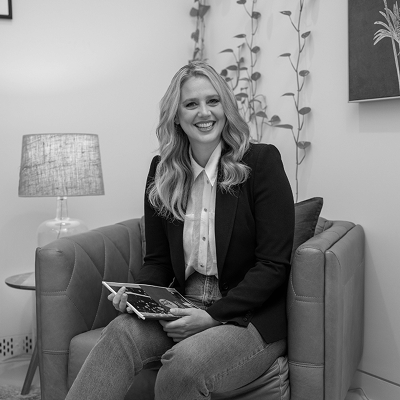
ASKING FOR A FRIEND
Is it normal to hide extra hours worked, or do others do this too?
ASKING FOR A FRIEND - QUESTION
Senior creatives often work until 2am then hide those hours, feeling embarrassed about needing extra time. Nicky Bryson, brand strategist and founder of The Trenches, explains why this shame cycle perpetuates a broken industry model where creativity gets time-constrained. Psychologist Tara Hurster reveals how sleep deprivation creates a vicious cycle of decreased productivity. Andy Wright from Never Not Creative advocates for timesheet honesty to help agencies understand real workloads. This warm, practical discussion tackles the question "How do I account for all the extra hours I work?" with industry insights and actionable advice for reclaiming self-worth.
Time Sheets and Self-Worth: Why Hiding Your Hours Hurts Everyone
Working until 2am and then hiding those hours on your timesheet? You're not alone. Many creatives feel embarrassed about the extra time they need, worried it makes them look slow or incompetent. But this cycle of shame and secrecy is actually harming both you and the industry as a whole.
This question was answered by Nicky Bryson, Principal and Co-founder of Sayers Brand Momentum and founder of The Trenches mentoring program, alongside Tara Hurster, psychologist and founder of The TARA Clinic. Andy Wright, founder of Never Not Creative, hosted the discussion.
The Industry Model is Broken
The creative industry has a fundamental problem: it tries to time-box creativity, which simply doesn't work. As Nicky explains, "when you time constrain creativity, everything can become derivative."
What's happened over time is that clients and agencies have created unrealistic expectations. Projects that once had three months for delivery now get five weeks, sometimes five days. "That's the cycle that's happened where it's now an expectation that you can deliver the same output within less inputs," Nicky notes.
This isn't your fault, and you're definitely not the only one dealing with it. The pressure to deliver more for less has become the industry norm, leaving talented creatives like you working excessive hours just to meet impossible deadlines.
Why We Hide Our Hours
There's a huge stigma in agencies about complaining or appearing unable to cope. As Nicky points out, "there's this really big stigma in agencies about not complaining and just sucking up and doing it."
Many of us have been in that frustrating cycle where you argue for more time, waste energy going round in circles, and end up doing the job in the same timeframe anyway. It's exhausting and demoralising, so hiding the extra hours feels like the easier option.
But here's the thing: your self-worth shouldn't be tied to how quickly you can complete a project. You sound competent and talented – your colleagues like your work, and you're clearly delivering quality results.
The Sleep Factor
Tara brings up a crucial point about the vicious cycle of sleep deprivation. When you skip sleep, you become less productive and less creative, which means you need even longer to complete tasks. "The more you skip sleep, the less productive, the less creative you become, which means that you can get into a cycle where you're doing longer and longer days because your output is less and less per hour."
The magic happens in those last 6-8 hours of solid sleep – that's when your brain processes creativity, innovation, memory, and concentration. By working until 2am, you're actually sabotaging the very skills that make you excellent at your job.
The Power of Honesty
Here's what might feel scary but could actually be liberating: try being honest with your timesheets. As Nicky suggests, "just maybe even if no one notices, at least you're being honest. Sometimes when we feel anxious about something, when we embrace it or just acknowledge it, it frees us from the feeling."
Andy reinforces this point: "the business can't know otherwise. It could hire another person maybe if it knew that you were struggling with that, or it could start to work with clients to say, hey, you need to give us more time for these types of projects."
Your transparency could help others too. When you're honest about your hours, it might encourage colleagues to do the same, leading to broader conversations about realistic workloads and better industry practices.
Know Your Rights and Get Support
If you're consistently working unpaid overtime or feeling pressured to hide your actual hours, you may have workplace rights that are being violated. Never Not Creative offers a free support line in partnership with Artis Causa, providing initial legal advice for issues including unpaid work, bullying, and workplace mistreatment.
The support line is available to anyone working in creative and marketing industries, including designers, copywriters, account service, strategists, and project managers. You can access free introductory legal advice to understand your rights and explore your options.
Learn more about the Never Not Creative Support Line
Moving Forward
Remember, as Nicky says, "you need them to support you more, not the other way around." Smart agencies are moving away from hourly billing towards value-based, output-focused work because it recognises that creativity can't be constrained by a clock.
You're not mediocre for needing time to do excellent work. You're human, and you deserve to work in an environment that supports both your wellbeing and your creativity. Start with small steps – be honest about your hours, prioritise your sleep, and remember that protecting your wellbeing ultimately leads to better work for everyone.
our guests
Industry Leader

Nicky Bryson
Telstra
Mental Health Expert

Tara Hurster
Host

